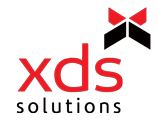
The World Bank’s World Integrated Trade Solution (WITS) has reported that Saudi Arabia’s import levels now stand at $163.8bn, with Nigeria’s reaching $46.5bn.
It’s no surprise then that Institute members, and firms new to export, are looking to expand their business into the Middle East and Africa’s incredibly lucrative and growing markets.
The biggest hurdle for businesses that are relatively new to the markets is the steep learning curve when it comes to understanding product testing requirements and the Conformity Assessment Programme for exports.
For those already active in these territories, it’s hard to keep pace. Procedures continuously change, often without much notice, while forms are complicated and riddled with jargon. Added to this, financial planning is difficult due to late payments and penalties on letter of credits due to incorrect documentation.
So, we asked IOE&IT corporate member and expert in export procedures, XDS Solutions, to give us the lowdown and have set out its advice as a guide:
New to customs clearance? There are FOUR FUNDAMENTALS you should consider:
1) Certificate of Conformity
Governments around the world place rigorous requirements on importers. They do this to protect their consumers from goods that are sub-standard.
This means that in order to clear customs smoothly, your shipments will require certain mandatory certificates (issued by an approved / accredited body), as part of the country’s Conformity Assessment Programme. Without this certification, your shipments will not be granted access.
Certificate of Conformity programmes apply to the following markets:
Middle East – Saudi Arabia, Kuwait, Iraq, Kurdistan, Qatar and Lebanon.
Africa – Kenya, Nigeria, Uganda, Egypt, Ethiopia, Ghana, Tanzania, Algeria and Botswana.
However, the two to spend most time getting to grips with are SASO (Saudi Arabia) and SONCAP (Nigeria).
2) Country of Origin Certification
A Certificate of Origin (C of O) is an international trade document proving that goods in a particular export shipment are wholly obtained, produced, manufactured or processed in a particular country.
Virtually every government in the world considers the origin of imported goods before deciding whether to grant customs clearance. However, the process is far from straightforward because the C of O requirements of each differ enormously and are constantly evolving.
C of O certification into The Middle East and Africa includes:
ATR 1
EC Certificate of Origin
EUR 1
Arab Country of Origin
EC Arab Country of Origin
3) Product Testing
From handbags to industrial machines, in order to gain customs clearance, your products will need to pass certain standards, regulations and product approval requirements and these will differ too, depending on which market you import into.
4) Translation
Successful international trade is fuelled through well translated commercial documents. You’ll need to consider customs, tax and duties, EU regulations and trade and negotiation contracts as well as product manuals, diagrams and technical reports.
Avoid the pitfalls
According to XDS Solutions, businesses focused on international expansion often come unstuck because the procedural advice they receive is generic, i.e. one-size-fits all.
It stresses that to be successful, customs clearance must be based on a bespoke approach. After all, each business and export market is different and will raise very different challenges.
Most importantly, XDS advises that early export procedural planning (before you take an order on the first shipment) is often the key to success.
Exporters who are concerned about the complexities of international compliance can boost their knowledge base by enrolling staff on the Institute’s Diploma in World Customs Compliance. The pioneering 18 month to two-year online course offers part-time blended learning, with modular assessments – and leads to a full customs qualification at level 5 diploma level. You can check it out here – where you will also find details of our complete range of professional qualifications.
About XDS Solutions
Chelmsford-based XDS was launched in 2013 to offer export managers a fast and simple way to manage customs clearance. With more than 12 years’ combined experience in export compliance, its founders knew well the frustration felt at being unable to find a straightforward route. Instead of slow, complex, web-based conformity assessment programmes which fail to take into account unique business requirements, an XDS expert advisor personally manages every step of each client’s export compliance journey.


